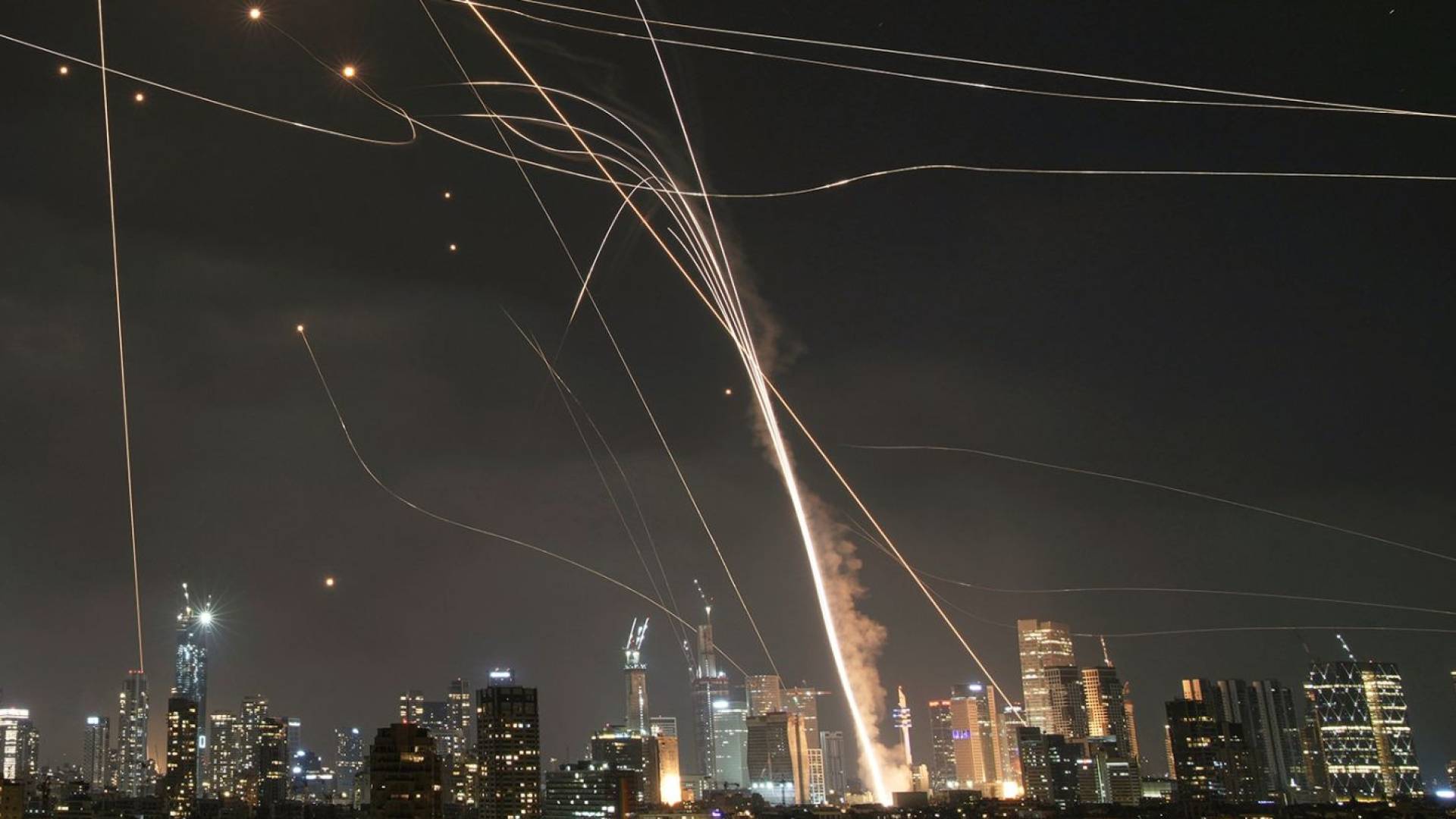‘Israeli’ Iron Dome missiles working to intercept Iranian projectiles over Tel Aviv during the 12-day-war in June, 2025.
‘Israel’ worried as Iran nears 2,000 stockpiled missiles: Hebrew media
Note: AI technology was used to generate this article’s audio.
- Iran is rapidly rebuilding its ballistic missile arsenal and is on track to possess approximately 2,000 missiles capable of reaching ‘Israel’, according to Hebrew Channel 13.
- The missile buildup is supported by round-the-clock factory production and massive imports of rocket fuel ingredients from China, while Iran's core nuclear facilities remain damaged but are being augmented by secret new sites.
Iran is rapidly rebuilding its ballistic missile arsenal following the devastating 12-day war with ‘Israel’ in June 2025.
According to a recent report by Hebrew Channel 13, Tehran has already renewed most of its missile stockpile and is on track to possess approximately 2,000 missiles capable of reaching ‘Israel’ within months.
This buildup comes as Iran works to restore damaged nuclear facilities, prompting close monitoring and warnings from ‘Israeli’ officials.
The report added that Iran learned two “lessons” from the June war: Going underground and placing little importance on missile accuracy.
The June war, which saw ‘Israel’ launch extensive airstrikes on Iranian nuclear sites and missile infrastructure, inflicted significant damage.
‘Israeli’ forces, supported by US B-2 stealth bombers, targeted key enrichment plants at Fordow, Natanz, and Isfahan, destroying over 20,000 centrifuges and halting uranium enrichment activities.
Iran fired thousands of missiles in retaliation, but its arsenal was depleted by roughly half, with many launchers and underground storage facilities damaged or destroyed.
Despite this setback, satellite imagery and intelligence reports indicate Iran has shifted to round-the-clock production to replenish and expand its capabilities.
Western intelligence sources, as reported by CNN, reveal that Iran has imported over 2,000 tons of sodium perchlorate, a key ingredient for solid rocket fuel, from China since September, defying reimposed UN sanctions on its ballistic missile program.
These shipments, arriving at ports like Bandar Abbas via sanctioned vessels, could enable the production of around 500 new missiles. Analysts estimate Iran's pre-war stockpile at about 2,700 missiles, and current efforts aim to not only restore but exceed this level, with factories reportedly operating 24/7 to achieve a monthly output of 200 missiles.
Satellite analyses from organizations like the Associated Press, CSIS, and the Institute for Science and International Security (ISIS) confirm reconstruction at missile sites such as Shahroud, Parchin, and Khojir, where buildings housing planetary mixers for solid fuel production are being repaired.
However, challenges persist: Iran lacks large-scale planetary mixers, potentially seeking them from China, and its air defenses remain degraded, making launches vulnerable.
A senior ‘Israeli’ defense official told JNS that Israel is tracking these developments closely, stating, "Every day we check whether the Iranians are crossing any red lines... If they cross the red lines we set for ourselves, we will act without hesitation."
Iran Nuclear File
On the nuclear front, Iran's program has been severely hampered, but signs of recovery are emerging.
The International Atomic Energy Agency (IAEA) has demanded full cooperation from Tehran, including access to bombed sites and accounting for its uranium stockpile, which includes 440.9 kilograms enriched to 60% purity, enough for up to 10 nuclear bombs if further processed.
IAEA inspectors have been denied entry to damaged facilities like Fordow and Natanz since the war, with Iran voiding a September inspection agreement.
Satellite imagery shows minimal rebuilding at these core sites, with debris still blocking operations and no restoration of electrical infrastructure.
However, activity has intensified at alternative locations, such as the Pickaxe Mountain complex near Natanz, where tunnel expansions and security perimeters suggest preparations for centrifuge assembly or clandestine enrichment.
A new underground site north of Isfahan may also serve as a third enrichment facility. The IAEA Board of Governors passed a resolution urging compliance, supported by the US, UK, France, and Germany, but opposed by Russia and China.
Iran maintains its program is peaceful and has vowed to rebuild, though experts note the loss of 14 nuclear scientists and internal purges may slow progress.
Iranian officials have announced a "ballistic missiles without limits" policy, claiming advancements like the Shahab-6 ICBM with a 10,000-km range, though Western analysts question its feasibility without nuclear warheads.




